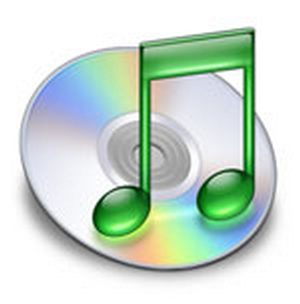Podcasting
Get the latest talk or training direct to your iPod ready for your train ride into work - podcasting is a means of automatically synchronising your computer (and hence MP3 player) with the latest published audio.
Its the "now" plaything of home DJ's across the web, and is being trialled by the BBC, CNN and other big media corporations as the first wave of radio on demand. Podcasting can seem an intimidating concept but really it is a pretty simple concept - click here to see a pictoral representation of what podcasting is, go on! Its helpful for the uninitiated.
Please choose one of the three options below to publish your podcast
Podcasting on your site ONLY
Podcasting is now available from the Endis platform, and site administrators don't have to do a thing.
The list of audio and video recordings available from the Audio / Video page is available as a podcast feed (an RSS feed), simply click the XML button and link this feed into your podcasting receiver.
If some content is restricted to site members, then you should be logged in to get a personalized feed that can be used by your podcast receiving program.
 Publishing on iTunes Publishing on iTunes
Users of iTunes will be aware that the iTunes system operates a searchable directory of podcasts that users can browse through and subscribe to. The audio RSS feed from Endis is iTunes compatible - so you can publish your site's audio on the iTunes system. Follow these two simple steps:
|| Optimize your Feed for iTunes ||
To customize your iTunes podcast you will first need to create a customized feed. If you haven't done this already you can do so as follows:
- Login to the Web Office and select the 'Settings' tab.
- From the left-hand side navigation select the 'API's' category and then choose the 'Media XML' option. Once this is selected you should see the work pane refresh to display the 'Media XML' page.
- Select the 'Add a new media feed' task, located at the bottom of the page.
- You should now see your new media feed's properties. Select 'Format 5 - iTunes Podcast' from the 'XML Format' drop-down list if you wish to produce a feed that's fully compatible with the iTunes player.
- Now select the folder location that includes the media you wish to display in your podcast feed. If you wish to display all the media recordings on your site you can leave your root folder selected and choose the 'Include media subfolders' and 'Include subgroups' options.
- The 'RSS fields' and 'iTunes fields' can be used to customise the meta data for your feed. This meta data is used in the display of your feed in both the iTunes store and in the iTunes media player. The help icon next to each feed will give more details on what each item represents.
- Finally select the types of media that you wish to include in your feed. If the iTunes format has been selected then only file types supported by iTunes are included, so you could simply click 'all' to select all the valid file types.
- Click 'Save' at the top right of the page to commit your changes.
Your feed has now been created and can be accessed through the 'Feed URL' displayed at the top of your feed details. You can replace the current default feed that is used for all Media across the site with your new feed by selecting it within 'The site's main RSS feed uses' option located at the bottom left of the 'Media XML' page. Once you click 'Save' to commit this change your new feed will be used as the podcast feed accessed from the Audio/Video page. The new podcast feed will be accessible on the previous address of http://sitedomainname/Media/rss.xml so the address of any feeds previously published to iTunes won't need to be modified.
|| To publish your audio feed on iTunes ||
Please make sure you have first download and install the iTunes program on your computer
- Select iTunes Store in the navigation within iTunes
- Click on Podcasts (usually under the iTunes Store heading).
- Scroll down to the bottom left of this Podcast Directory page, and click on "Submit a Podcast"
- You are asked for a RSS Feed URL. This is the web address of the Audio RSS feed that will be fetched from Endis, and will be of the form: http://[Your domain name]/Media/rss.xml. You can find your feed in the Web Office by going to the Media tab of the folder where your audio and/or video is located. Right click on the orange xml button, and copy the url of the feed from the properties.
- If you are not signed into iTunes you will asked to sign in or register with an iTunes account.
- Follow remaining instructions.
Note: You don't have to publish your site's RSS feed into iTunes' global directory in order to use podcasting, you can simply add the feed (drag the URL into the podcasting folder) into your iTunes program to subscribe yourself to the podcast.
 Publishing with Feedburner to iTunes Publishing with Feedburner to iTunes
Some users like to publish the xml feed of their podcast to a free web feed management tool that will distribute their feed not only to iTunes, but to other social media networks without any additional work. In order to do this you will need to get a free account at www.feedburner.com. When you set up your account, please select the option that says "I am a podcaster". Follow the steps on feedburner to provide your customized feed directly to iTunes and other services for free. You can also make specific selections of category, podcast logos and other options for itunes directly in feedburner.
|